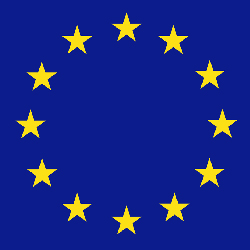Alt Investments
BREXIT COUNTDOWN: Alternative Investment Fund Solutions For "No Deal" Outcome

What options are in front of alternative fund managers if the UK departs the European Union without a trade deal?
With the UK’s exit from the European Union less than three
weeks away and a chance that Brexit could happen without a trade
deal, wealth managers are understandably nervous. An issue that
has been debated before in London’s financial community is
so-called “passporting” of financial services and of market
access.
If the UK is no longer a member of the Customs Union after 29
March and does not have a treaty deal to give it access to the
European Single Market, what should wealth and asset managers do?
Already, some fund management organisations such as Legal &
General have shifted some activities to EU states to ensure
business continuity.
Some data can convey what is potentially at stake. The EU’s
investment funds sector had total assets under management of
€15.2 trillion ($17.1 trillion) at the end of last year,
according to data issued last week from the
European Fund and Asset Management Association. And
pan-European UCITS funds, which can be bought and sold across
national borders, accounted for €9.284 trillion in terms of net
assets. Alternative investment funds, such as hedge funds,
private equity and property, held €5.873 trillion. Nine countries
recorded positive asset growth in 2018. These are large markets,
with the UK having been a major driver of fund-raising and
managing money.
What could happen if the UK departs the EU with no deal?
According to UK-based financial services group SGG, there are a number of options
to consider if this happens. (Its guidance was issued at a
recent event in the City, attended by this publication.)
In the case of a UK manager overseeing existing funds for which
fund-raising is closed, UK asset managers will be able to keep
managing funds for which money-raising is closed. With
alternative investment funds that operate under the AIFMD
passport, UK private equity managers have several options: They
can set up an alternative investment fund manager in an EU member
state such as Ireland or Luxembourg; they can appoint a
third-party AIFM. In the latter case, the UK manager can provide
investment advice to the AIFM and undertake portfolio management
once conditions for delegation of power back to the UK are
met.
In the event of a no-deal Brexit, another route that UK managers
can take to get access to EU investors is to use national private
placement regimes. If the UK leaves without a deal on 29 March,
UK fund managers would have the status of a “third country”
alternative investment fund manager. EU member states will allow
a third country AIFM to sell alternative investment funds in
their country in a number of ways. However, private placement
rules vary “considerably” between EU member states, SGG says,
with some imposing long waiting periods, and others such as
France, Italy and Spain where private placement is off-limits.
SGG said there was no indication when the UK could expect its
Financial Conduct Authority to have co-operation agreements in
place with other EU member states. At the time of writing, the
position appears unclear.
Finally, SGG set out another situation for fund managers, such as
EU funds accessing UK investors under a no-deal Brexit which use
the Financial Conduct Authority’s “temporary permission regime”.
The temporary regime allows most European Economic Area-domiciled
investment funds to continue to be sold to the UK to new and
existing investors for up to three years in the event that there
is a no-deal Brexit. The FCA said that managers who want to
continue marketing passported funds in the UK after Brexit can
now register for temporary permissions. The FCA opened this
window on 7 January this year.
As reported here, the UK's Financial Conduct Authority has signed
a number of
memorandum of understanding pacts to deal with the impact of
a "no deal" Brexit.